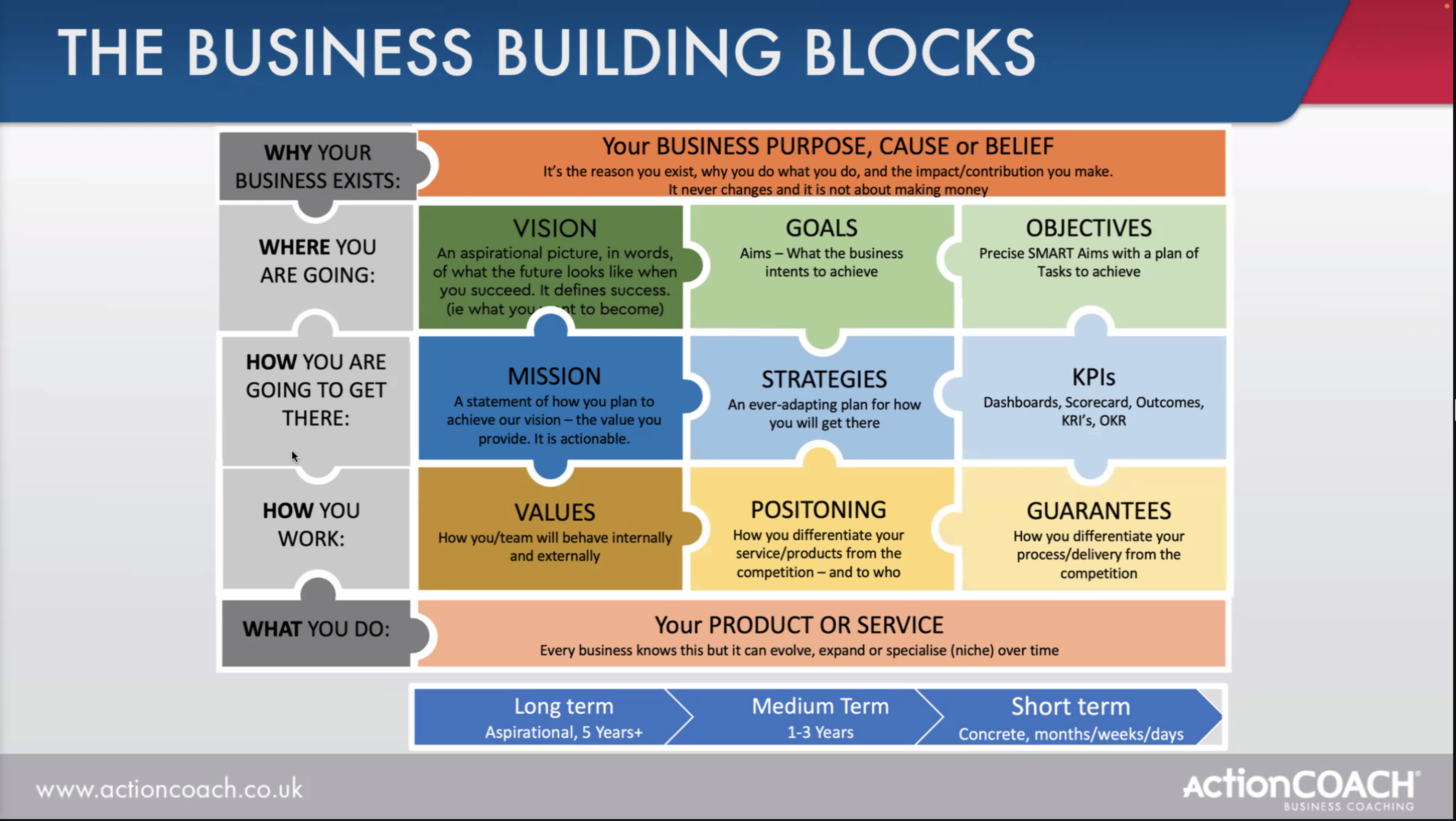Many people don’t like to talk about the Vision, Mission and Values of their business. Some feel it’s a bit like revealing your bank balance, so they are uncomfortable to engage in such discussions. However, talking about Vision, Mission and Values is essential to the future of your company and its ultimate success. If you haven’t determined what these are, I challenge you to start thinking about these three things and how you can clearly and confidentially express them without any reticence.
Vision, Mission and Values are much used words, easily flung around the place, yet actually quite difficult to understand. As an executive coach, I’ve discovered that many people consider these concepts to be somewhat vague. You may know what you do for a living, but not so sure why you are doing it and how are doing it. You may already have a business or are thinking of starting one. Either way I believe this blog post will help bring clarity.
To me Vision, Mission and Values are not just a mishmash of words. They are crucial business building blocks. This all starts to make sense when you see these concepts as a jigsaw puzzle where all the facets fit together. I found it really inspiring putting the following slide together showing each business block, but also displaying them on a corresponding timeline that indicates how each concept relates in the long term, medium term and long term. Long term being about five years, medium term three years and short term comprising of days, weeks and months.

Questions around Vision, Mission and Values
WHY does your business exist?
All of these blocks pose questions, staring off with an emphasis on why your business exists. This is something Simon Sinek often speaks about in his TEDtalks. He has also written a book about it – ‘Start With Why, which I recommend.
This question is often challenging to answer so I’ve provided a definition to make it easier to unpack. Consider your purpose, cause or belief. It is the reason why you do what you do and the contribution you make.
Your why is something that doesn’t change. And a note to self, it is not about making money. If you say to me, “I’m in business to make money,” then we need to talk because it’s likely your business will fail. There must be more to keep you going. Making money is not your why. That’s an outcome.
There are definitely people out there who don’t understand their why. If that is you, I’d go so far as to say, “fake it till you make it!” The reason for this is that you will adapt accordingly as your business develops and clarity comes. This will give you the focus to take the actions you need to deliver the results you’re after.
WHERE you are going?
This relates directly to your Vision, which you will notice is in the long-term column. It’s not short term, or even medium term, it’s long term. Your Vision must be an aspirational picture. You need to put it into words describing a picture of what the future looks like for you when you are successful. Your vision statement defines your success. It’s what you want to become.
HOW are you are going to get there?
Well, that is your Mission. People often confuse Vision and Mission using the words interchangeably. But they are not the same thing. Your Vision is what you intend to achieve. Your Mission is how you will achieve your Vision. Your Values then are the way in which you will execute them both.
A good example of what a Mission is, can be seen in a military context. The army are known for their training missions: “Go to that hill, take that flag.” It is an actionable plan. You can also plot the steps towards completion. Mission is long term, but it can be broken down into medium term strategies and short term Key Performance Indicators (KPIs) which measure your progress along the way. The strategies are the steps you are going to take to achieve your Mission and they’re ever adapting.
HOW do you work?
These are your Values – how you and the team will behave internally and externally. For example, Love, joy, peace, patience, kindness, goodness, faithfulness, gentleness, and self-control are Biblical values known as ‘the Fruits of the Spirit’.
Core values can be broken down into ‘A Code of Conduct’ or as I like to call it, ‘The way we do things around here’. A tip to determining your Values is to consider both positive and negative aspects. Consider both the things you want to see happen in comparison with things you don’t want to see happen. Having clearly articulated Values is a powerful step towards reinforcing the behaviour patterns you wish to emulate as a business.
We’ve often heard it said, that ‘The customer is King!’ The implication is that they can behave in any way they like which doesn’t really work in reality. For example, you’re not going to break the law to accommodate a client. Having a set of Values helps you point your staff and customers in the right direction to achieve appropriate outcomes.
Values lead you to the correct positioning of your products and services. In most businesses, positioning is very much about how you differentiate yourself from your competition. That differentiation should reflect the Values your organisation holds. This may lead to you offering various guarantees. I think it’s important for businesses to have guarantees as they reduce objections to sale points and are reassuring to customers.
WHAT do you do?
The question, ‘What do you do?’ is probably the easiest to answer? Everyone knows what they do and can talk at length about their product or service. The important thing to remember here is that your products and services can evolve as you start to specialise so the things your business does will range across the short term to medium and long term.
In conclusion, Vision, Mission, and Values serve as the bedrock upon which successful businesses are built. While these concepts may seem abstract or challenging to grasp at first, they provide a clear roadmap for you to navigate towards your desired future. By understanding why your business exists, where you aim to go, and how you plan to get there, you can align your actions and strategies with your overarching Vision.
It’s essential to remember that Vision sets the long-term aspirations, Mission outlines the path to achieve those aspirations, and Values dictate how you conduct yourself along that journey. Together, they form a cohesive framework that guides decision-making, inspires action, and fosters a strong organisational culture.
By continuously revisiting and refining your Vision, Mission, and Values, you can ensure that your business remains relevant, adaptable, and true to its purpose. Embrace the journey of discovering and articulating these foundational elements. They are not just words on paper but the driving force behind your ultimate success.
Also read: The Power of Vision – Writing Vision Statements for Business Success






Double Wall Corrugated (DWC) Pipes : With superior strength and flexibility, DWC pipes are ideal for underground installations. ElitePipe Factory in Iraq offers high-grade DWC pipes.
HDPE Cable Ducts At ElitePipe Factory in Iraq, our HDPE Cable Ducts are engineered for superior durability and flexibility, making them ideal for protecting electrical and communication cables in various environments. Made from high-density polyethylene, our ducts offer excellent resistance to impacts, chemicals, and environmental conditions, ensuring the longevity of the cables they encase. As one of the leading manufacturers in Iraq, ElitePipe Factory is committed to delivering HDPE cable ducts that meet the highest quality standards and provide reliable performance. Learn more about our HDPE solutions on elitepipeiraq.com.